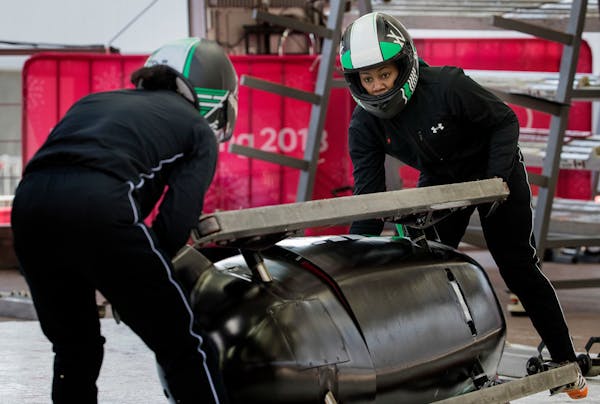GANGNEUNG, SOUTH KOREA – Before his fourth appearance at the Olympics, John Shuster explained how the international fervor for curling has ratcheted up the competition for Winter Games gold. More and more countries are pouring money into their elite national programs, generating much greater parity throughout the entire 10-team field.
"Every year, teams get better all over the world," Shuster said. "The field at the Olympics will be the best curling field ever assembled. There were always some wins you could circle in the past, but there aren't any in this [tournament]."
That point has become painfully clear to Shuster and the rest of his U.S. team at the Pyeongchang Games. A disastrous Sunday — which started with an 8-2 drubbing from Japan and ended with an 8-5 loss to Norway — dropped it to 2-4 in the Olympic round robin. That put Team Shuster in a three-way tie for seventh place, but that had a chance of improving. As this edition of the Star Tribune went to press, the U.S. led the powerful Canadians 3-2 in the fourth end on Monday at Gangneung Curling Centre.
The first U.S. man to make four Olympic curling teams, Shuster is in his third go-round as the American skip. He expected three strong seasons of international play would put his team on course for its first Winter Games playoff berth since its bronze-medal run in 2006.
Instead, Shuster has struggled mightily with his shooting touch. His success rate of 73 percent through six games is the lowest of the 10 Olympic skips, and the U.S. also is last in team shooting at 79 percent. The U.S. women are faring better, slipping past Denmark 7-6 on Monday morning to move into a tie for fourth place at 3-3.
"It's hugely disappointing," Shuster said. "… Losing sucks. This team has not been in this position, where now, we need help. This is unfamiliar territory."
His current foursome, which also includes Tyler George and John Landsteiner of Duluth and Matt Hamilton of McFarland, Wis., usually is not in such dire straits at this point in a tournament. Shuster, though, has been here before.
The highlight of his Olympic career is the 2006 bronze medal he won as part of Pete Fenson's team, still the only Olympic curling medal in U.S. history. Shuster formed his own team after the Turin Games and skipped the U.S. to a 10th-place finish in 2010 and ninth place in 2014. His current foursome has beaten many of its Olympic opponents in international play, and Shuster said he came into these Games better prepared than ever before.
While many teams have had difficulty reading the tricky Olympic ice, the Americans have found it utterly perplexing — a problem that intensified when the rocks were sanded before Sunday's evening session. Shuster shot 54 percent against Japan and 67 percent against Norway, with many of his shots well off the mark. On the last rock of the fifth end, the U.S. was set up to take three points, but Shuster's shot sailed through the house to leave it with only one.
Sanding the stones makes them glide more slowly and curl more. "They did that to ensure that the ice is really good at the end of the week, and the rocks still continue to curl at the end of the week," U.S. coach Phill Drobnick said. "It was the same for all the teams out there."
The U.S. women were able to adapt in a tight game vs. Denmark. In several ends, officials needed to measure to determine the scoring, but Nina Roth's team did not wilt. The skip tucked a draw behind two Danish stones in the 10th end to win it and keep the Americans in the chase for the playoffs.
Team Shuster could still advance, but its chances have grown much slimmer.
"There are going to be a lot of what-ifs for us if things don't go our way," George said. "No matter what happens the rest of the week, we're going to keep fighting.''
Tyler Freeman hits a 2-run homer to help power the Guardians past the Athletics 10-2
The Heat are headed to Boston after ousting the Bulls 112-91 in East play-in finale

